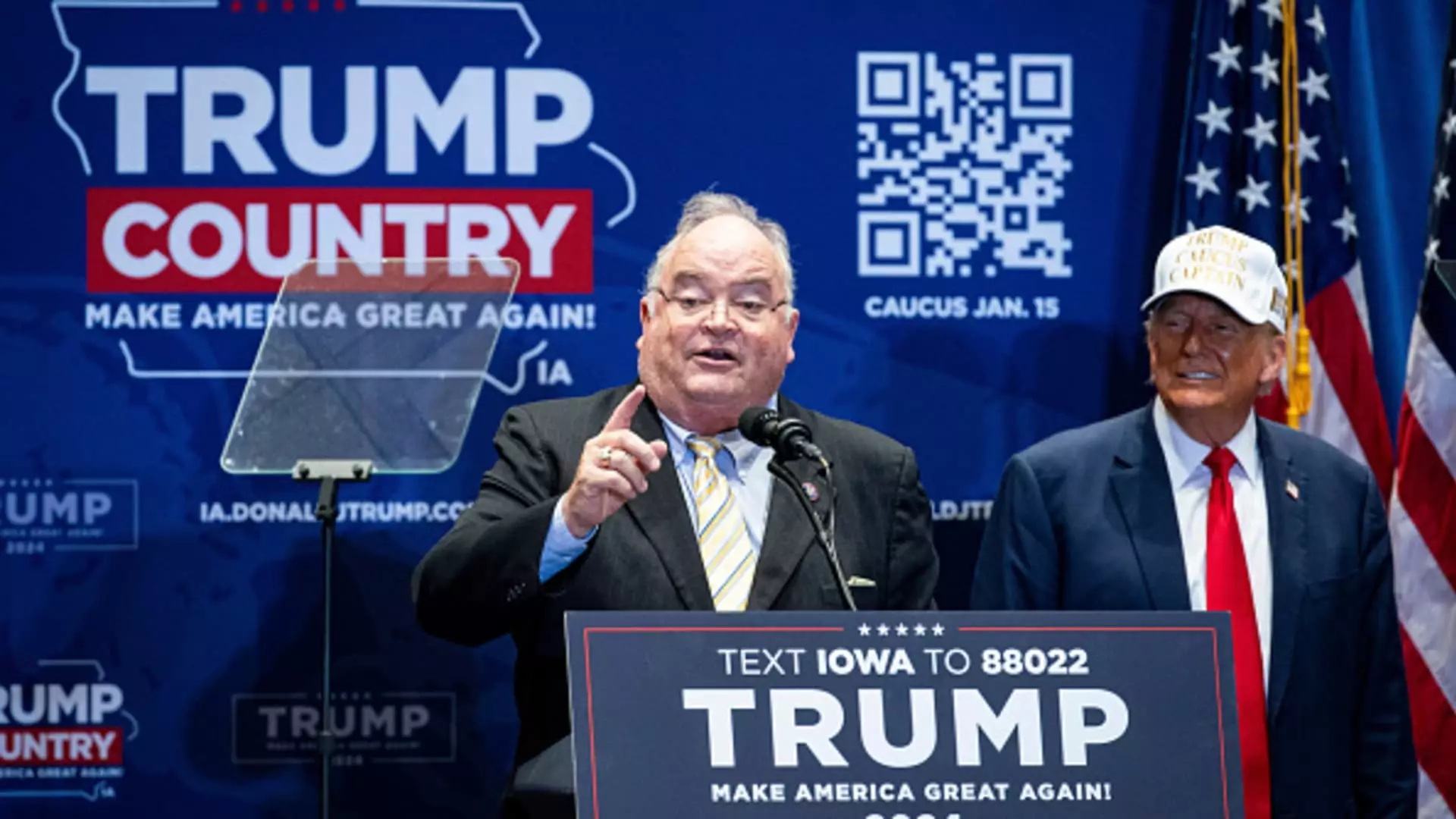The recent confirmation of Billy Long as the IRS Commissioner marks a pivotal moment laden with potential consequences for taxpayers across the United States. While this appointment has provoked a combination of skepticism and approval, it undeniably reflects the broader ideological divide that currently defines American politics. Long, whose nomination was backed chiefly by Senate Republicans, faces scrutiny from Democrats who question both his allegiances to the Trump administration and the implications of his ties to contentious tax credit programs. Amid significant budget cuts imposed on the IRS, Long’s confirmation is not merely a political footnote; it could signify the dawn of an unsettling era for tax administration and enforcement.
Concerns Over Political Interference
One of the most pressing concerns regarding Long’s appointment centers around the potential for the IRS to become politicized. During the Senate Finance Committee hearing, Long made an assurance that “The IRS will not, should not be politicized on my watch.” However, such declarations ring hollow to many observors, especially considering lingering perceptions of the IRS as an extension of partisan agendas. It is alarming to witness a political figure with documented ties to the Trump administration gain control over an agency that ideally should operate free from political influence. Taxpayers find themselves with limited confidence that the IRS will function efficiently and impartially under Long’s stewardship.
The concerns are amplified juxtaposed against the backdrop of the significant budget cuts encountered by the IRS. These reductions, spearheaded by the Trump administration’s austere fiscal policies, paint a grim picture for the agency’s ability to perform its core function—enforcing tax regulations and ensuring compliance among all taxpayers.
The Tax Gap: A Growing Crisis
Amidst this turbulent climate, the “tax gap”—a staggering $696 billion for the tax year 2022—looms over the agency like a dark cloud. This figure represents substantial federal revenue that remains unpaid by individuals and corporations alike. Long’s written testimony expressed a commitment to “modernize and streamline the IRS” to ensure that the agency collects the maximum owed each year. Yet, the steps needed to resolve this basic inefficiency seem at odds with the crippling budgetary constraints imposed on the agency.
The Treasury Inspector General for Tax Administration (TIGTA) has drawn attention to alarming staff shortages; nearly one-third of revenue agents who conduct vital audits have vanished from the agency’s roster. Without adequate manpower and resources to perform audits effectively, how can Long realistically combat the tax gap?
Furthermore, Long’s mention of using “smarter IT” and taking advantage of the “AI boom” seems more like optimistic rhetoric than a solid action plan. Taxpayer trust in the IRS heavily relies on its ability to be effective and reach out to individuals who are avoiding their fiscal responsibilities. Yet, it is hard not to see these tech-oriented solutions as mere band-aids on a larger, more systemic problem.
The Implications of Pending Budget Cuts
The fallout of the Trump administration’s budget proposals cannot be overstated. A staggering 37% cut in IRS spending threatens to damage the agency’s infrastructure at a time when it is already reeling from staff losses and resource depletion. With Congressional Republicans advocating for such deep cuts, it would be naive to assume that revenue collections will not suffer as a result.
The necessity for effective administration is more pressing than ever, especially with forthcoming legislation that may require extensive taxpayer engagement. The proposed changes to earned income tax credits sit on the table, poised to create more administrative burdens within an already overstretched IRS. In a system where transparency and efficiency are indispensable, such challenges could become insurmountable.
The journey ahead is fraught with peril for taxpayers and the IRS alike. With challenges mounting and oversight becoming increasingly rare, Billy Long’s nomination may change not only the direction of the agency but also the very fabric of taxpayer trust in the United States. The stakes could not be higher—and the consequences more alarming.


Leave a Reply